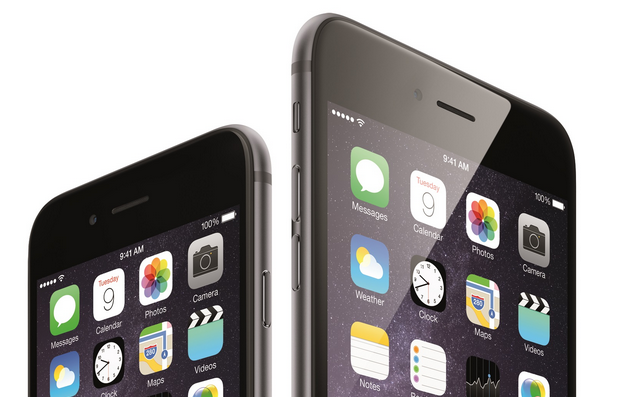There was no loud chanting and no ear-piercing megaphone. In fact, the mood was relatively low-key at a rally outside the University Village Apple Store on Tuesday evening.
But for a small group of 15 or so that gathered to show their support for Apple, the message was clear: We want our privacy.
“I’m tired of them taking our rights and our liberties,” said Butch Cassidy, who drove 90 miles to Seattle from Bellingham just to attend the rally.
In this particular case, “them” refers to the federal government — specifically the FBI and Department of Justice, which are asking Apple to unlock an iPhone owned by a terrorist.
A federal judge last week ordered Apple to create a software workaround that would help the feds open the locked iPhone owned by Syed Rizwan Farook, one of the two shooters in December’s terrorist attack in San Bernardino. Apple vowed to resist the court order, asserting that authorities are asking for the company to create a backdoor for all iPhones, a move that it claims could endanger the privacy of millions of iPhone owners.

The dispute will be one of the top tech stories of the year, as it touches to polarizing topics like civil liberties and personal privacy, as well as the balance of power between corporations and government.
Fight for the Future, a non-profit that gathers support for freedom of expression and individual rights on the Internet, helped organize nearly 50 rallies all around the nation on Tuesday. Attendees were encouraged to use use ProtestSign.org to create digital signs on their smartphones with messages like “FBI: Don’t Break Our Phones,” and “Secure Phones Save Lives.”
“People are rallying at Apple stores because what the FBI is demanding of Apple is going to make all of us less safe, not more safe,” Evan Greer, campaign director of Fight for the Future, said in a statement. “Encryption and security technology is what protects our hospitals, our airports, our water treatment facilities. If we allow the government to start forcing private companies to punch holes in these critical defenses, it’s not a question of if those backdoors will be exploited by those wishing to do harm, but when.”
The crowd outside of the U-Village Apple Store was small, but folks were clearly passionate about not only supporting Apple’s decision to resist the federal requests, but also — perhaps more importantly — about protecting privacy.
“It’s another government overstep, another pull at our liberties,” Cassidy said. “Every day, they keep taking little by little. It’s like the frog in the pot — you throw him in a boiling pot of water, and he’s going to jump right out because he notices it. But if you slowly turn that water up, he’ll be boiled before he knows it. That’s what they are doing to us every day.”
Josh Arenson, a software engineer at Seattle-based Canonical, said he came out to the rally because of the importance of this issue and how it affects the tech community that he’s apart of.
“These are issues that I understand,” he said. “I’m tired of using terrorism as an excuse to take away our civil rights.”
Given the calm vibe of the rally itself, it was difficult for passerbys to notice why exactly people were gathering outside the Apple Store. But the activity caught the attention of Cassandra Ryen-Carroll, who walked out of the store and felt compelled to sit down with her iPad Pro and design her own protest sign.
“I feel pretty strongly about our privacy and the weakness of that backdoor,” she said. “If the FBI has it, who else could have it? It’s definitely a slippery slope.”

But Ryen-Carroll, likely sharing the same view as many Americans, said she feels torn.
“I feel like they need to find out information about the terrorist, but at what cost?” she asked. “If one suffers, then does everyone have to suffer?”
I asked a few of the folks in attendance whether they were Apple customers. Scott Worley said he has never purchased a single Apple product in his entire life.
“I wasn’t [a fanboy] until this week,” he noted.
Apple and the federal government are locked in a public-relations war over the phone. Overall, the government appears to be winning. Donald Trump, the tycoon and candidate for U.S. president, has called for a public boycott of Apple until it gives in. In tech circles, Apple holds the advantage. Google, Twitter and Microsoft, the software giant Gates founded, are among some of the companies that have publicly come out in support of Apple’s position.
On Monday, Mark Zuckerberg, cofounder of Facebook, said during the Mobile World Congress conference in Barcelona: “We’re sympathetic with Apple on this one. We believe in encryption. I expect it’s not the right thing to try to block that from the mainstream products people want to use. And I think it’s not going to be the right regulatory or economic policy to put in place.”
Microsoft co-founder Bill Gates, meanwhile, took a more natural position, telling Bloomberg that “I do believe there are sets of safeguards where the government shouldn’t have to be completely blind.”
Most at the rally in Seattle on Tuesday were worried about the long-term implications of Apple or any other tech giant allowing the federal government access to customer data.
“If they can take this right, it only means they will take more and more until we are helpless,” said Alex Todd, who also traveled from the Bellingham area. “That is a sad reality.”
Added Cassidy: “We need to make sure Apple succeeds and beats the Feds because if not, this just opens up Pandora’s Box. They’ll be able to rip liberties left and right from here on out.”







